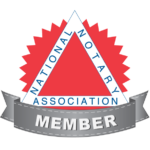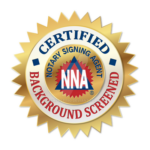
What Is An Online Notary?

A Texas online notary is a notary public who is authorized to perform notarizations remotely using audio-visual communication. They can notarize documents for clients located anywhere in Texas, without the need for an in-person meeting. Texas online notaries follow strict security protocols to verify the signer’s identity and ensure the integrity of the notarization process.
Why Use An Online Notary?
- Call From Anywhere, With any Device
- Zero Travel Time
- ID Verification Software
- Customized Signature
- Instant Document Download
- Guided Experience

Call with any device
Sign electronically
Meet from anywhere
Receive your digital seal
Our Process
1. Schedule Your Session
make an appointment, provide your first name, last name and upload your document.
2. Access Your Video Call
You’ll receive a link to your email allowing you to join the session with your online notary. once joined the online notary platform will prompt you to verify identification.
3. We Notarize Your Document
Your notary will guide you through the signing process and notarize your document with an electronic seal.
Watch Our Step By Step Guide
The world of remote online notarization can be confusing. In this video, we’ll walk you through the process of our remote online notary services and how you can easily and securely notarize your documents online.
Our Features

SSL Encryption
Time Savings
Convenience
Legal Compliance
Record Keeping
Call From Anywhere
Your Privacy And Security Is Our Priority
Identity Verification
We utilize a robust identity verification system that uses multi factor authentication and biometric identification for signers to ensure identity and prevent fraud.
Secure Encryption
All communication and document transmission during the RON process are encrypted using industry-standard encryption protocols. This ensures that your information remains confidential and protected from unauthorized access.
Audit Trail
Every step of the RON process is recorded and documented in an audit trail, including the identity verification process, document signing, and notarial acts. This audit trail serves as a verifiable record of the notarization process, providing transparency and accountability.




Frequently asked questions
RON enables people to connect with a commissioned online notary public. This notary is different from a traditional notary. They have the authority to notarize documents online using audio/video technology and a digital certificate. and in place of a traditional record book an electronic record is used.
The notary then verifies the signer’s identity and creates an electronic record of the transaction. The electronic record is then securely stored and can be used for legal and court proceedings. With RON, the signer can be located anywhere in the world and the notarization process can be completed in minutes.
Anywhere! We are commissioned Texas remote online notaries. This gives us the authority to perform remote online notarizations(rons) for anyone in the world. This is provided that the document can be recorded in the US before rendering any subsequent services.
RON is accepted in 42 states The laws and regulations governing online notaries are still evolving in many states. At present, the most common type of online notarization is a Remote Online Notarization (RON), which requires a notary to be present in person and to use two-way audio/video technology to witness the signer’s identity and the signing of the document.
We can accept up to 3 signers during notarial acts. We also have access to our own witnesses. But all participants must go through credential analysis as well.
As we are Texas notaries public we can notarize almost any document for anybody around the world. but in accordance with the secretary of state, Texas administrative code the signer must hold American identification for identity proofing for our notary sessions.
Online notarizations have been legal since 2018. Remote online notarizations are done with the same care and attention as in-person notarizations. This is achieved through two-factor authentication and secure digital signatures.
We use advanced technology to ensure the security of the documents and the identity of the signer. We also keep detailed records of all notarizations, so that we can provide proof of authenticity if needed. All notarizations performed using our services are legally binding and will be recognized in any court of law.
In order for our commissioned notaries to render any subsequent services a Valid driver’s license, US Passport or military ID is needed.
There are multiple precautions that remote online notaries and our platforms use. sessions are recorded, encrypted and audited by the Texas Secretary of State and each filecomes with ssl encryption.
Anybody from any state can use an online notary as long as the receiver of said notarized document accepts them. We receive documents from states like Florida, California, New York and all states in between.
Common Documents
Contracts
Any legal agreement between parties, such as sales contracts, lease agreements, employment contracts.
Legal Documents
Affidavits, power of attorneys and many other court issued and legal documents
Real Estate Forms
Real estate loan closing packages, HELOC, refinances, lending documents
Medical Forms
Certain medical-related documents, such as medical consent forms, advance directives, and HIPAA authorization forms, may require notarization to ensure their validity and enforceability.
Construction Documents
Many documents such as lien waivers, installation documents, notice of commencement can be notarized and accepted for recording.
Insurance Documents
Various insurance-related documents, including insurance policies, beneficiary designation forms, and release of liability forms, may require notarization to validate their authenticity.
Texas remote online notary laws
The Texas Legislature has revised the Texas Government Code to allow a Texas notary public to validate a signer’s identity via video chat. This makes Texas one of many states that have adopted this law. Virginia was the first to do so in 2012. The two main Texas legal codes connected to online notarization are included.
- This law allows a notary public to do an online notarization that meets the requirements of the subchapter and affiliated rules even if the person being notarized is not located in Texas. The subchapter outlines the requirements for verifying the signer’s identity. It also explains what must be included in the electronic record of the notarial act.
This law states the procedures and protocols established by the secretary of state for online notarization.
Who is eligible for notarization? How do you apply? What steps should you take when notarizing online? What are the standards for validating identity and credentials? What records must be kept? What are the technical and security aspects of the notarization system?




